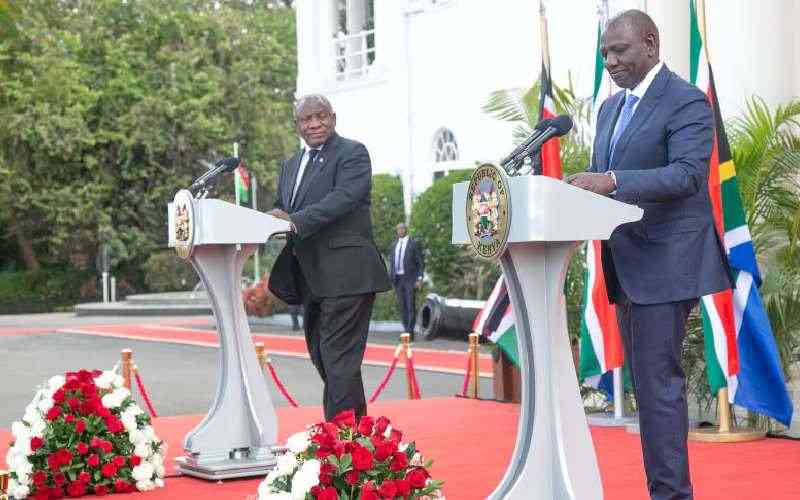×
The Standard e-Paper
Home To Bold Columnists

His presidency started with a diplomatic gaffe - the revocation of Kenya's recognition of Western Sahara through a tweet and a U-turn - but in recent weeks, William Ruto has moved to establish himself as an astute diplomat.
In his two months in office, President Ruto has met a king, fellow presidents, prime ministers and diplomats regionally and internationally, strengthening friendships and striking multi-billion shilling deals.